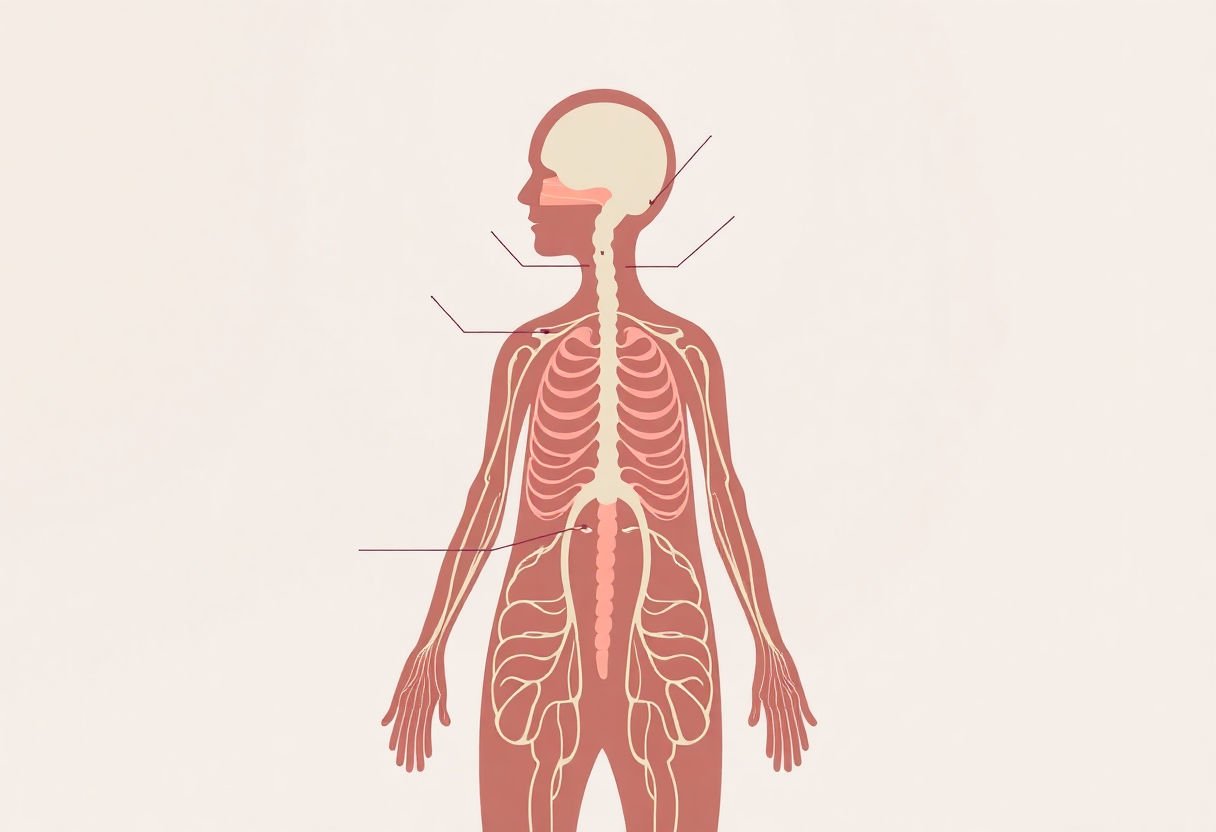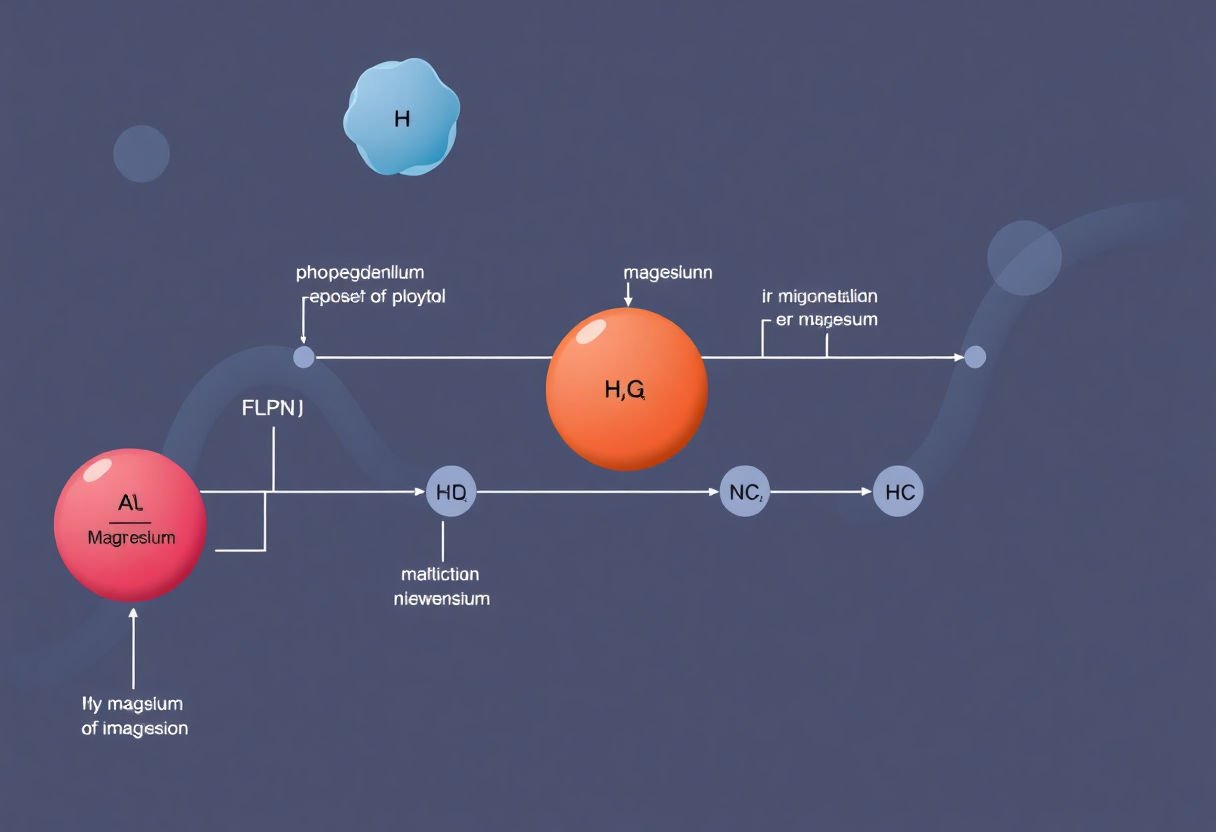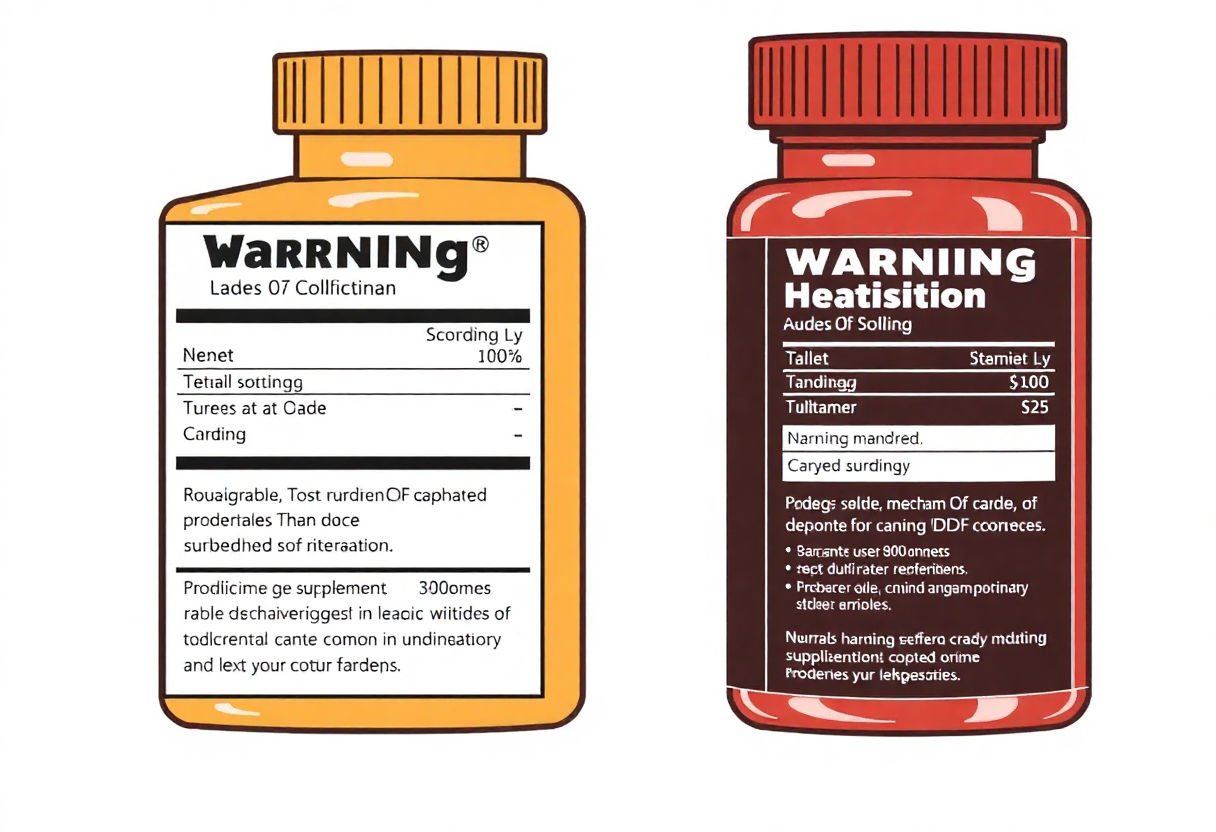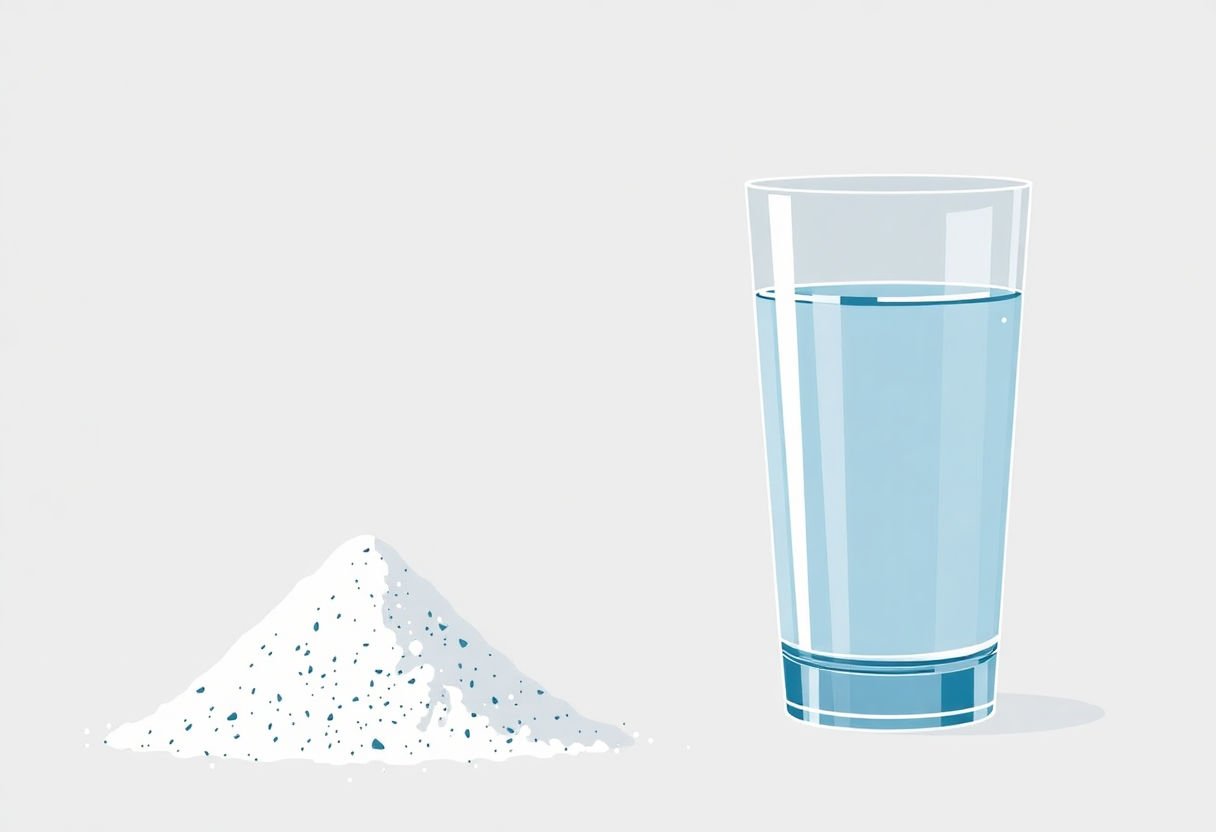Anxiety and stress touch many lives today. People often seek new ways to handle these feelings. Powder magnesium becomes a topic of interest. Some see it as a tool to help manage stress and worry. Easy to use and backed by science, it offers hope. This article will explore how magnesium works in the body and why the powder form might be better. Learn about the research, see steps for using it, and consider safety tips. Dive into a world where a simple mineral could ease the mind and calm the heart.
Key Takeaways
- Powder magnesium may help reduce anxiety and stress by supporting the nervous system.
- This form of magnesium offers easy use and better absorption in the body.
- Scientific studies show magnesium can lower symptoms of anxiety.
- Consuming magnesium powder as part of a daily routine is convenient and safe with proper guidance.
- Consult a healthcare professional for the right dosage and to avoid possible side effects.
Understanding Anxiety and Stress

Anxiety feels like a tight knot in your chest. Stress can make your hands sweat and your heart race. These feelings affect your mind and body. Everyone experiences anxiety and stress sometimes. They are common responses to life’s pressures. But too much can harm your health.
Anxiety often brings worries about future events. You might feel restless or tense. Sometimes you have trouble sleeping or find it hard to concentrate. Shortness of breath and a fast-beating heart are physical signs.
Stress comes from feeling overwhelmed. It happens when demands seem greater than your ability to cope. Stress can lead to headaches, upset stomach, or feeling tired all the time.
Think of anxiety like a car’s alarm system. It alerts you to potential risks. But if it goes off too often, it can be exhausting. Stress is like carrying a heavy backpack. At first, it might feel manageable. As more weight is added, it becomes harder to carry.
Both anxiety and stress can trigger your body’s “fight or flight” response. This causes adrenaline to flow, making you more alert but also more tense. Over time, chronic stress can wear you out. It can affect your mood and immune system.
Understanding these feelings helps in managing them. Seeking ways to calm your mind and relax can make a big difference.
The Role of Magnesium in the Body

Magnesium plays a big role in keeping the body healthy. It acts like a helper for over 300 biochemical reactions. This mineral helps with making proteins, building strong bones, and keeping blood sugar levels steady. Every cell in the body needs magnesium to make energy and perform tasks.
Magnesium also helps muscles work properly. It allows them to contract and relax, which is very important for things like moving, breathing, and even having a steady heartbeat. Without enough magnesium, muscles might cramp or feel weak.
The brain relies on magnesium for mental health. Stress and anxiety can affect the mind. Here, magnesium helps by keeping the brain calm. It helps regulate neurotransmitters, which send messages in the brain. If the brain works smoothly, stress and anxiety can lessen.
Think of magnesium as a traffic cop, directing messages in the brain. It lets through calming messages, which can reduce stress. This is why some people look to magnesium for its calming effects.
In short, magnesium keeps the body and mind balanced. It supports both physical and mental health. Without it, everyday functions would struggle, like a smartphone without a charge. By helping with both physical and mental processes, magnesium is key to feeling good.
Why Choose Powder Magnesium
Powder Magnesium: Convenience and Absorption Benefits
Many people choose powder magnesium for its ease of use and effectiveness. This form often absorbs well, providing quick benefits. It’s simple to mix with water or juice, making it a stress-free part of your routine.
Better Absorption
Powder magnesium absorbs faster compared to pills. When mixed with liquid, it dissolves quickly, aiding in faster absorption by the body. This can improve energy and mood in a short time.
Easy to Use
No swallowing pills! Just measure the powder and stir it into a drink. It’s perfect for people who may struggle with tablets. You can also adjust the dosage easily for your needs.
Highly Portable
Take it anywhere. Packets of powder magnesium fit in bags or pockets. You can have it at home, work, or on the go. It’s convenient for any lifestyle.
Flexible Dosing
Powder magnesium makes it easy to fine-tune your dosage. Start with a small amount and increase slowly. Find what suits you best without hassle.
Taste Options
Different flavors make it enjoyable. Choose from plain or flavored for an experience that fits your taste. Enjoy it as part of a daily routine without unpleasant flavors.
Choosing powder magnesium offers convenience and effective absorption. Its benefits make it a popular choice for stress and anxiety management. Try it out for a simple addition to your wellness plan.
Scientific Evidence Supporting Magnesium for Anxiety
Magnesium plays a role in helping with anxiety. Several studies find a link between low magnesium levels and higher anxiety. One study from 2017 found magnesium can reduce anxiety in people with mild to moderate symptoms. This study shows magnesium as a possible aid for anxiety relief.
Another research article looked at the relationship between magnesium and stress. It found that more magnesium helped lower stress responses. This finding suggests that adding magnesium could help calm nerves.
In a clinical trial, participants took magnesium supplements for several weeks. Researchers noted an improvement in participants’ anxiety symptoms. Some felt less tense and more relaxed after regular magnesium intake.
Magnesium works by binding to neurotransmitter receptors in the brain, like GABA. GABA has calming effects and helps reduce feelings of fear or worry. Think of GABA as a soothing voice in your head. Magnesium helps GABA do its job better.
Here are some benefits reported from these studies:
- Reduced anxiety symptoms: People felt less anxious after taking magnesium.
- Improved relaxation: Magnesium can help you feel more at ease during stressful times.
- Faster response to stress: People dealt with stress better with the help of magnesium.
These studies suggest magnesium holds promise for easing anxiety. Always check with a doctor before starting any new supplement regimen.
Magnesium Dosage and Safety Considerations
Magnesium, a vital mineral, helps the body in many ways. It supports nerves, muscles, and various chemical reactions. When people feel anxious or stressed, taking the right dose of magnesium can help. But how much magnesium should you take? Let’s discuss this.
Adults often need about 310 to 420 milligrams of magnesium per day. This varies based on factors like age and gender. When taking powdered magnesium, always check the package for serving sizes. This helps you know how much magnesium you are taking.
You must use care when taking supplements. Overdoing it may cause side effects such as diarrhea, cramping, or nausea. Some folks might feel dizzy or have an upset stomach. If you feel any of these, you should reduce the dose or stop taking the supplement and talk to a doctor.
Certain people should be even more cautious. Those with kidney problems, for example, should always talk to a healthcare provider before starting magnesium. Magnesium may also interact with some medicines. For instance, antibiotics or medications for osteoporosis might not work as well with magnesium.
Here’s a helpful tip: take magnesium with meals. This reduces the risk of stomach upset and helps your body use magnesium better. Drinking lots of water throughout the day can help too.
In short, magnesium can be supportive when used smartly and safely. Always listen to your body and seek advice from health experts when needed.
How to Incorporate Magnesium Powder into Your Routine

To add magnesium powder to your daily routine, follow some easy steps. Begin your morning with a nutritious smoothie. Sprinkle a dash of magnesium powder into your blender. Blend with fruits and yogurt. A simple smoothie can energize your start to the day.
Consider oatmeal for breakfast. Stir in a small spoonful of magnesium powder. Serve this classic dish warm. The powder dissolves easily, leaving oats tasty and wholesome.
If you enjoy coffee or tea, try adding magnesium there. Mix a pinch into your drink. This small addition won’t change the flavor much, but gives a healthy boost.
Evening relaxation? Try a soothing drink. Create a mix of warm milk, cinnamon, and honey. Add some magnesium powder. Enjoy this calming drink before bed.
Timing matters. Take magnesium with meals. This helps your body absorb it better.
If you cook often, put magnesium powder into sauces or soups. It blends well and you won’t taste it. Vegetables and grains are great dishes for this trick, too.
Consistency is key. Make magnesium part of your routine. Just like brushing teeth, do it daily. Regular use may help with anxiety and stress management.
Try these simple ways. They make magnesium powder a natural part of your life. Enjoy the benefits as part of a calm, balanced routine.
Potential Side Effects and Interactions

Magnesium powder can be helpful for anxiety and stress. But, like any supplement, it might cause some side effects or mix poorly with other things.
Common Side Effects:
- Stomach Upset: Some people might feel queasy or have a loose stomach.
- Nausea: Feeling like you might throw up happens sometimes.
- Diarrhea: This can occur if you take too much.
Not everyone will have these side effects. If they do, they are usually mild.
Interactions with Medications:
Magnesium can affect certain medicines. If you take any medicine, talk to your doctor first.
- Antibiotics: Magnesium might make it hard for the body to absorb antibiotics.
- Blood Pressure Medicines: It might amplify their effects, leading to very low blood pressure.
Interactions with Other Supplements:
- Calcium and Iron: Magnesium might block the body’s ability to absorb these.
- Zinc: Taking zinc with magnesium can also reduce absorption.
Use care if you mix magnesium with these other supplements. Space out when you take them to avoid problems.
Always talk to a healthcare provider before adding magnesium powder to your routine. This can help you avoid any unwanted issues. Stay safe and informed!
Conclusion
Powder magnesium shows promise for anxiety and stress management. It supports mental health by improving essential bodily functions. You may find it convenient due to its easy absorption. Scientific studies back its effectiveness in alleviating symptoms. As stress levels rise, magnesium can be a valuable tool. But, discussing with a healthcare provider is crucial before adding it to your routine. This helps ensure safety and proper usage.
Frequently Asked Questions
How does powder magnesium help with anxiety?
Powder magnesium supports calmness by ensuring the brain functions well. It helps to keep stress hormones in check and supports better sleep.
What is the best way to take powder magnesium?
You can mix powder magnesium with water or juice. Take it with meals for best absorption. Start with a small dose and see how you feel.
Are there any side effects of using powder magnesium?
Some people may experience stomach upset or diarrhea. Stick to the recommended dose to avoid these issues.
Can you use powder magnesium with other medications?
Talk to your doctor if you take other medicines. Some drugs might not work well with magnesium supplements.
How long before seeing results from powder magnesium for anxiety?
Results vary, but you may notice changes in a few days to weeks. Consistency is key for the best effects.
